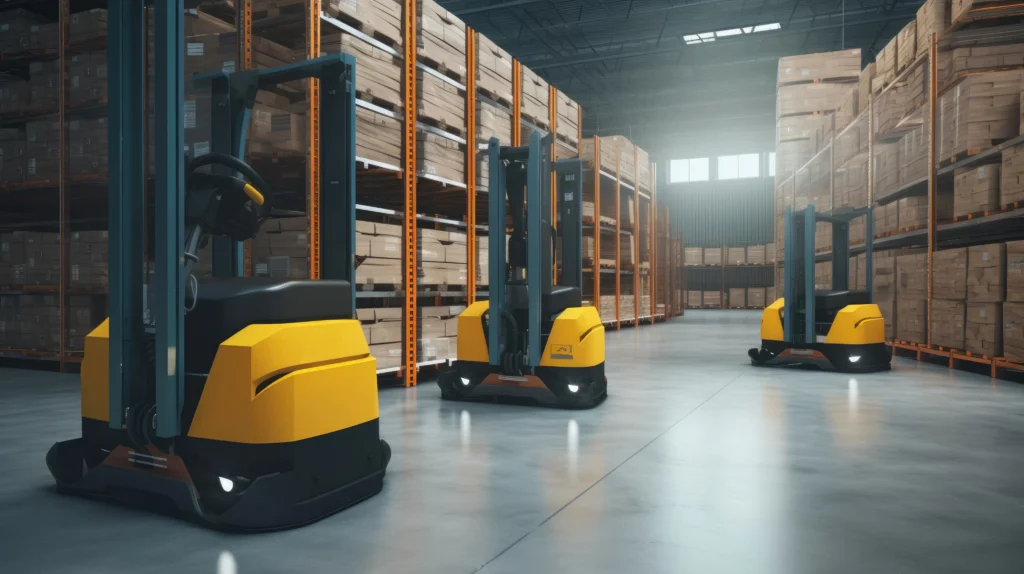In the fast-paced, ever-evolving world of modern workplaces, safety and efficiency are paramount. Whether you’re in a warehouse, construction site, or distribution centre, forklifts play a crucial role in ensuring that goods are moved quickly and safely. However, to operate a forklift, individuals need to be properly trained and certified. This blog will break down everything you need to know about forklift certification, why it’s essential, what it involves, and who needs it.
Why Forklift Certification is Crucial for Safety and Efficiency
Operating a forklift might seem like a straightforward task, but it requires skill, precision, and a clear understanding of safety procedures. Forklifts are heavy machinery that, if not operated correctly, can pose serious risks to both the operator and those working around them. According to workplace safety statistics, forklift accidents are a leading cause of workplace injuries and fatalities. In fact, improper handling of forklifts results in hundreds of fatalities and thousands of injuries annually.
This is where forklift certification comes in. Certification ensures that the operator has undergone the necessary training to handle the machinery safely, efficiently, and in compliance with workplace regulations. This minimizes the risk of accidents, protects workers, and boosts operational efficiency. Beyond safety, having certified forklift operators in your team enhances productivity, as operators will be well-versed in the most efficient ways to operate the equipment.
Forklift certification also meets legal and regulatory requirements set by national and regional safety authorities, ensuring that your business remains compliant and avoids potential fines or legal issues.
What Does Forklift Certification Involve?
Forklift certification involves both theoretical and practical training. These training sessions cover everything from forklift operation techniques to safety protocols. To help clarify the process, here’s a breakdown of what forklift certification typically involves:
Classroom-Based Training
This part of the training focuses on the theoretical knowledge needed to safely operate a forklift. Topics generally covered in this segment include:
Forklift types and their features
Workplace safety and hazard awareness
Forklift load capacities and handling techniques
Personal protective equipment (PPE) usage
Load stability and weight distribution
Operational safety standards and regulations
Practical Training
Once the theoretical foundation is laid, trainees move on to hands-on practice. Practical training involves:
Operating a forklift in a controlled environment
Practicing load handling, stacking, and manoeuvring
Learning how to inspect the forklift before use
Handling different environments, such as narrow aisles or outdoor settings
This training helps ensure that the operator can manage the forklift in various conditions and can react appropriately in emergency situations.
Assessments and Evaluation
To ensure competency, trainees must pass both a theoretical and practical assessment. This evaluation confirms that they are capable of operating a forklift safely and efficiently. After successful completion, the individual receives a forklift licence or forklift certification, depending on local terminology and requirements.
Refresher Courses
Because safety standards and regulations can change over time, forklift operators must regularly refresh their skills and knowledge. Many companies require operators to complete refresher courses every few years to maintain their certification. These courses also serve as an opportunity to review new techniques and regulations that may have been introduced since the original certification.
Who Needs Forklift Certification?
Forklift certification is not just for those who are directly operating forklifts but also for employers who wish to ensure their workplace is safe and compliant with local regulations. Here’s a breakdown of who needs forklift certification:
Forklift Operators
Obviously, forklift operators are the primary individuals who need certification. Whether you are a new employee or someone looking to advance your career, obtaining a forklift licence is essential. In many regions, it’s required by law for individuals to hold a valid certification before operating a forklift. In Australia, for instance, a forklift licence is issued after completing a recognised training course that meets the standards set by Safe Work Australia.
Employers
Employers are legally obligated to ensure that their workers are properly trained and certified to operate forklifts. They must verify that operators have completed a recognised forklift certification program and that all necessary safety precautions are in place. Failure to comply with these regulations can result in fines, legal action, and workplace accidents that could have been prevented.
Supervisors and Managers
Supervisors and managers need to be aware of forklift safety protocols, even if they do not operate the forklifts themselves. They are responsible for overseeing operators and ensuring that all safety measures are followed. Managers must ensure that operators are properly trained, certified, and up to date with safety regulations. Having a manager with a strong understanding of forklift operations can also help improve the overall safety culture within the company.
Workplace Safety Personnel
If your company has a dedicated safety officer or team, it’s important for them to understand forklift safety and certification requirements. These individuals play a key role in enforcing safety procedures, identifying hazards, and ensuring that all employees are following the necessary protocols. In some cases, they may also be involved in training or conducting safety audits.
The Benefits of Forklift Certification
Forklift certification offers a variety of benefits to both employees and employers. Here’s why it’s important:
Enhanced Workplace Safety
Certified forklift operators are better equipped to identify hazards, handle loads safely, and follow operational safety protocols. This reduces the likelihood of accidents and injuries, ensuring a safer environment for everyone.
Improved Productivity
Forklift operators who are properly trained can work more efficiently, leading to faster job completion and smoother workflows. A well-trained operator can navigate tight spaces, handle heavy loads, and avoid downtime due to accidents or equipment failure.
Legal Compliance
In many regions, operating a forklift without certification is illegal. By ensuring your team is certified, you can avoid potential fines and legal consequences. In Australia, for instance, all forklift operators must hold a nationally recognised certification under the Work Health and Safety (WHS) Act.
Career Advancement
For employees, forklift certification can open up new career opportunities. It demonstrates a commitment to workplace safety and can be an asset when seeking promotions or looking for new job opportunities.
Cost Savings
Investing in forklift training may seem like an added cost, but the benefits far outweigh the expense. Reducing accidents and increasing efficiency helps lower insurance premiums, reduce lost time, and avoid costly damages.
How to Obtain Forklift Certification
To get certified, you need to complete a recognised training course from a trusted provider. For those in Australia, AUS Forklift Training offers comprehensive forklift certification courses, ensuring that operators are well-prepared to operate forklifts safely and efficiently.
Conclusion
Forklift certification is not just a legal requirement—it’s a key aspect of ensuring safety and productivity in any workplace where forklifts are used. Whether you’re an operator, employer, or safety officer, understanding the importance of forklift certification is crucial to creating a safer and more efficient work environment. Don’t compromise when it comes to training—opt for accredited programs like those offered by AUS Forklift Training, and make sure you, your team, and your workplace are equipped to handle the challenges of modern industry.



